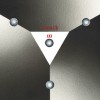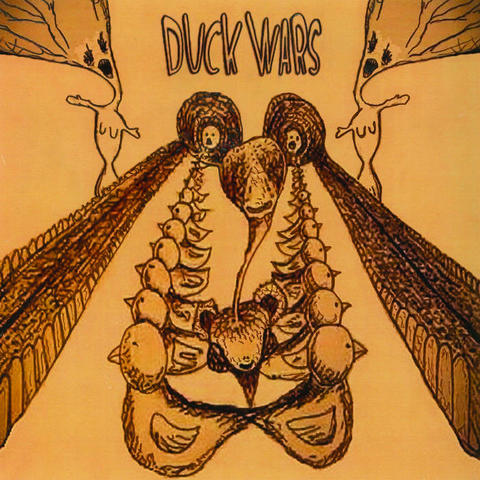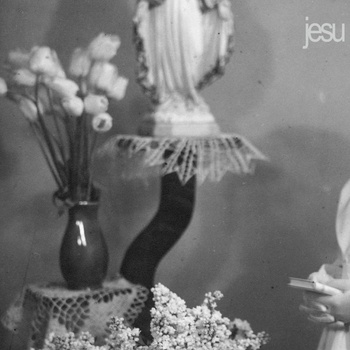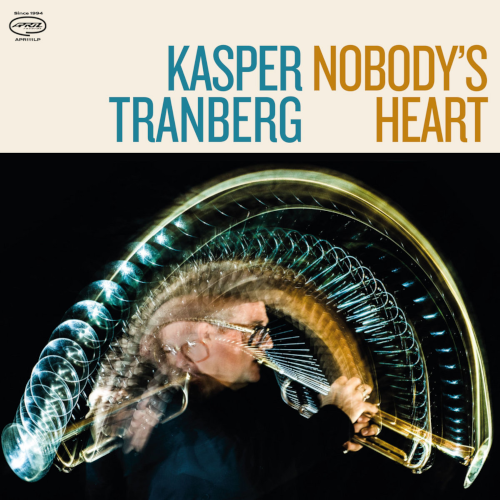In 1971, though, inspired by seeing incendiary recent performances by The Who and Alice Cooper (who was then touring his early dark masterpiece Love It To Death), the band underwent something of a Damascene conversation, a truly radical transformation that saw them emerge from their chrysalis a couple of years later with a startling new direction and an equally arresting new name. Taking the somewhat uncompromising moniker Death (David’s suggestion, based on his quasi-mystical interpretation of the positivity of death), over the following four years the band would evolve their own unique brand of fearsome soul-inflected hard rock, mixing up the diverse musical influences swilling around the city of Motown and The MC5 into a potent new gumbo.
Early demos of this gumbo were flavoursome enough to attract the attention and enthusiasm of industry supremo and head of Columbia Records, Clive Davis, a man whose impressive retinue of signings included Janis Joplin, Santana and Bruce Springsteen, and who in 1972 had contracted Earth, Wind and Fire to the label. Davis was so impressed with Death that in 1974 he bankrolled another recording session at Detroit’s United Sound Studios on Second Avenue in Antoinette (where original crawling king snake John Lee Hooker had recorded previously), one which yielded seven tracks, raw slices of soulful Death proto-punk. Sensing a potential phenomenon on his hands, Davis lobbied hard for the band to change their name to something a little more commercially appealing, but David Hackney, standing firm by his artistic vision, refused to compromise. Abiding by their preacher father’s maxim to “back up your brother,” the other two Hackney brothers, though desperate to sign a contract and play, thus also steadfastly refused to backtrack on their chosen name. Davis, knowing a terrific – but unsaleable – asset when he saw one, decided that on this occasion discretion was the better part of valour, and beat a hasty retreat thereafter.Although, musically, Death’s particular brand of magical alchemy had led to a precious new form of gold, in career terms, their name, their sound and, sadly, their colour, meant that the band faced only a long and desolate road ahead. Despite recording several more demos and rehearsals, releasing a single themselves and playing a handful of gigs, what little momentum there had been began gradually to ebb away from the band, and a slow disintegration saw the brothers finally call time on Death – ironically given the explosion of punk rock then happening along the NYLon axis – in 1977. As Bobby Hackney later commented: “Being in the black community and having a rock band, people just looked at us like we was weird. After we got done with a song, instead of cheering and clapping, people would just be looking at us.”
Comprising nine tracks, III is a beautifully-realised document, sequenced with real skill in order to highlight the band’s effortless ability both to incorporate influences from different genres and style and to modulate their material into contrasting shades of light and dark. From the angry ghetto proto-punk blast of “North Street” to the soaring soul rock chords of “Free” and the melancholic instrumental “First Snowfall in Detroit,” the breadth of Death’s ambitious song-writing is on show here for all to see: “Open Road” is an urban Blues in idiosyncratic waltz time, “Restlessness”’ driving hard rock is reminiscent of the (themselves sorely underappreciated) Sonic’s Rendezvous Band; and “We’re Gonna Make It” brings to mind The Beatles writing in the country idiom. The album’s highlight is perhaps the gorgeous soulful harmonies of ‘We Are Only People’, complete with spacey head-fuck Funkadelic intro, whilst “Yes He’s Coming” begins with a short motif that sounds almost like something that might fall out of a recording by Tortoise before blossoming into a devotional piece that looks forward to the gospel rock sound that Death’s successor band, The 4th Movement, would pursue during the 1980s.
With the band’s subsequent late flowering-career, some more conspiracy-minded observers of the Death story have queried whether, during the period when the band were sending out demos hither, thither and yon and receiving nothing but a door slammed in their face for their troubles, others were surreptitiously listening to them, copping the blueprint for punk, and then making hay with it whilst the Hackney brothers, whose ethnicity disbarred them from mainstream ‘rock’ success, languished. That interpretation does no-one any favours and is as demonstrably wrong-headed as it fatuous. The verges of the musical highway are littered with the bodies of acts such as The Hollywood Brats, Debris, Jesse Hector and The Electric Eels, all of whose astounding proto-punk work served them no better than the Hackney brothers, and some of which was recorded earlier. Death were, however, yet further proof that by the time Punk rock (with a capital P) broke in London and New York, it had been culturing in the dark for years, unseen and unrecognisable, until there was a public face by which to identify it.Whilst III perhaps lacks any of the band’s full-force proto-punk gems such as “Freakin Out” (from …For The Whole World To See), it nevertheless proves the band were far from being one trick ponies: they were songwriters of huge ability, talent and aspiration, ones who were badly served by an industry more interested in labels than in something genuinely distinct and worth nurturing. Thankfully, David Hackney, whose vision the band was, had enough faith to carry the torch for their legacy, even beyond his own lifetime:
David never wavered on the fact that the world one day would know about Death. He always believed it, right to the very end. As a matter of fact, right before he died in 2000, he came to me with some additional tapes. And he said, “Listen, you gotta keep these.” And I told him, I says, “David, I already have enough of our stuff, man.” And he said, “No, Bobby, you gotta do this.” He says, “Listen, the world’s gonna come looking for this music. I know that you will have it.” This was maybe a year before he died.
We should all be grateful for David’s belated vindication.
Give me Death and give me life.
-David Solomons-




